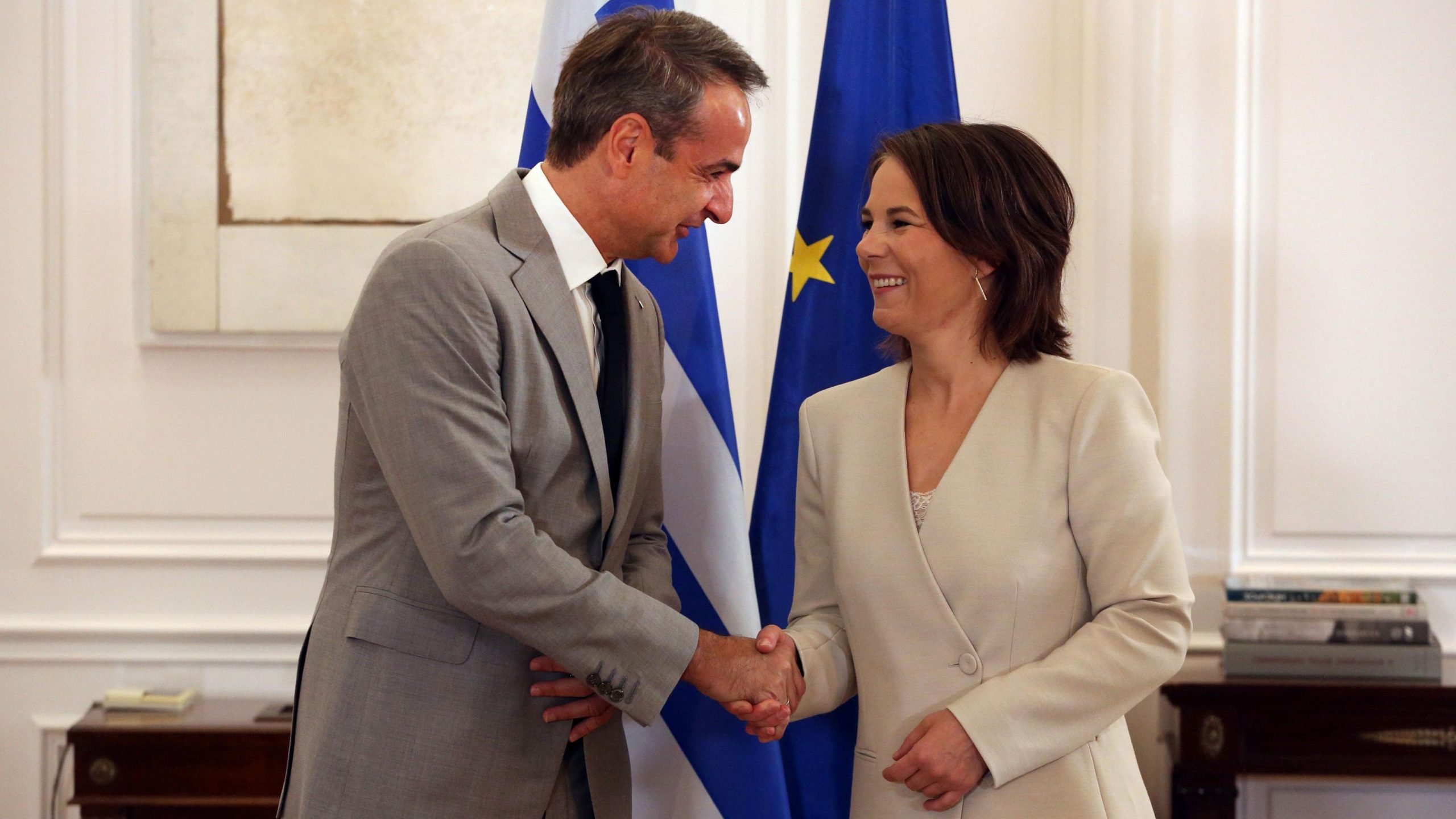the main source of the news: https://www.welt.de
Moscow’s attack on Ukraine shows that wars in Europe are once again conceivable. Experts fear above all a military aggression by Turkey against Greece. For Germany, this means that, unlike in the Putin case, we must now quickly reduce dependencies on Erdogan.
In recent weeks, members of the German government have been visiting Greece. In June, German Chancellor Olaf Scholz stopped by in Thessaloniki, and shortly thereafter Finance Minister Christian Lindner paid a visit to Athens – the first by a German finance minister in eight years. And most recently, Foreign Minister Annalena Baerbock made up for her trip to Greece, which was canceled in June due to a Corona illness.
The country did not receive this much attention even in the darkest days of the Greek economic and financial crisis.
The visits highlight Greece’s new strategic importance within the EU. Greece is becoming an increasingly important outpost for the protection of the EU’s external border. What was previously viewed in terms of civilian protection is increasingly becoming a military threat in light of Turkey’s increasingly aggressive tones and the provocations of its autocratically ruling President Recep Tayyip Erdogan.
Regional counterpart to Putin
Baerbock combined her trip to Greece with a visit to Turkey, and not without reason. Turkish fighter jets frequently thunder low over Greek islands in defiance of Greek airspace.
Erdogan permanently threatens the EU’s external borders: with his war rhetoric, which has already resulted several times in military operations such as in Iraq or Syria, with his signals, for example, to agree on an economic zone with Libya in a form that completely ignores the intervening Greek islands such as Rhodes or Crete. Or with his demand for demilitarization of the Greek islands lying off the Turkish mainland, which Erdogan at the same time keeps blatantly threatening to conquer.
A large part of the Greek population perceives Erdogan as the regional equivalent of Putin. Concerns about a military attack by Turkey are growing daily in Greece. At least the Greek government is responding to these provocations in a de-escalating manner. Nonetheless, with the Russian attack on Ukraine, inhibitions about launching a war in Europe have likely diminished, and EU member states must reposition themselves vis-à-vis their neighboring countries. Germany and Greece have key roles to play in different ways.
German doctrine must be reviewed
Greece has been able to rely primarily on French and U.S. military support in the recent past. Germany has so far acted more as a neutral mediator in past disputes – think of the confrontations between Greece and Turkey in the eastern Aegean Sea in the summer of 2020 – because of its close economic ties to Turkey.
The fact that Germany for a long time did not fully support EU member Greece when its borders were threatened is met with great incomprehension in Athens. And such a position also needs to be reviewed in light of the new doctrine of value-driven foreign policy introduced by the German government.
Germany is Turkey’s most important trading partner and one of its most important foreign investors and thus has considerable self-interests, similar to its past relations with Russia. In the future, these self-interests could stand in the way of a united EU stance in the event of Turkish aggression toward the EU.
In this respect, it is a legitimate question what attitude Germany would like to adopt toward Turkey in the future, also in comparison with Greece. Is it not time for signals that trade relations with autocratically governed states should tend to be restricted, of which Turkey is undoubtedly one?
Recent experiences with other autocratically ruled countries, with which Germany has become dependent, are currently being critically discussed in Germany’s public sphere and argue in favor of such restrictions vis-à-vis Turkey as well. Foreign Minister Baerbock sent clear signals during her visit: She condemned Turkey’s threatening military gestures and praised Greece’s willingness to engage in dialogue.
During his visit to Athens in mid-June, the German finance minister stressed that Germany would not accept the national sovereignty of EU partner countries being called into question. Equally important was his statement that it was time for Greece to open a new chapter in its development. It fits in with this that trade relations between Germany and Greece, which had fallen considerably during the crisis years, have finally started to rise again.
These relations must now be further intensified and expanded into a strategic partnership. The initial conditions for this have been created: On the one hand, the conservative government of Prime Minister Kyriakos Mitsotakis has launched the long-awaited reform process in Greece, as a result of which German direct investment in Greece has also increased, for example in renewable energies or in the IT sector.
On the other hand, Greece can currently become a new hub for energy distribution, especially when it comes to the region’s electricity and gas supply, where electricity will soon arrive via a submarine cable and LNG gas from Egypt and Israel.
These steps, as well as the long-term hedging of Greek sovereign debt, have also paid off in other ways: The EU has just ended the “Enhanced Fiscal Surveillance Program for Greece” and transformed it into a “normal surveillance program.” After 12 years, Greece has thus exited crisis state mode. Concerns that Greece’s public finances will once again become a mortgage in the face of rising interest rates are also currently unjustified, unlike in Italy.
Greece is on the right track
On the contrary, the vast majority of Greek government debt is invested at very low interest rates, and real Greek government debt is shrinking due to rapidly rising inflation. In other words, it is becoming increasingly realistic that Greece will be able to service its old public debt, which currently amounts to around 200 percent of GDP, in the distant future. And it is currently trying to avoid new government debt.
Despite all the progress, however, the reforms are nowhere near where the Greek government wanted to be when it took office three years ago. The Greek innovation system, the quality of regulation and bureaucratic processes and, above all, the judicial system are still underdeveloped compared with the European Union.
And so the German finance minister encouraged his Greek partners to continue this reform process despite all the global political adversities, and offered his support.
So there is a lot to talk about between the German and Greek governments. And it is good that the schoolmasterly tone on the German side, which has been adopted from time to time over the past ten years, is now a thing of the past – another important prerequisite for a strategic partnership.
the main source of the news: https://www.welt.de





